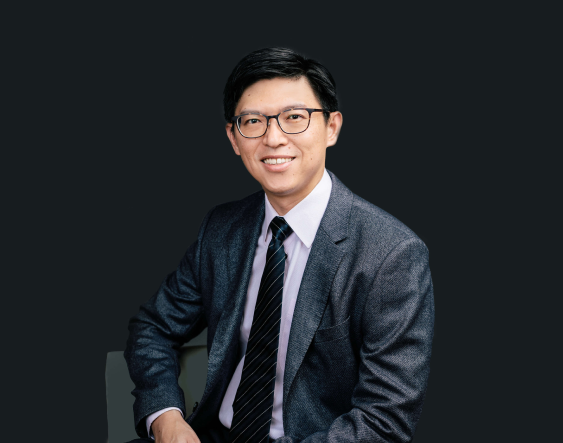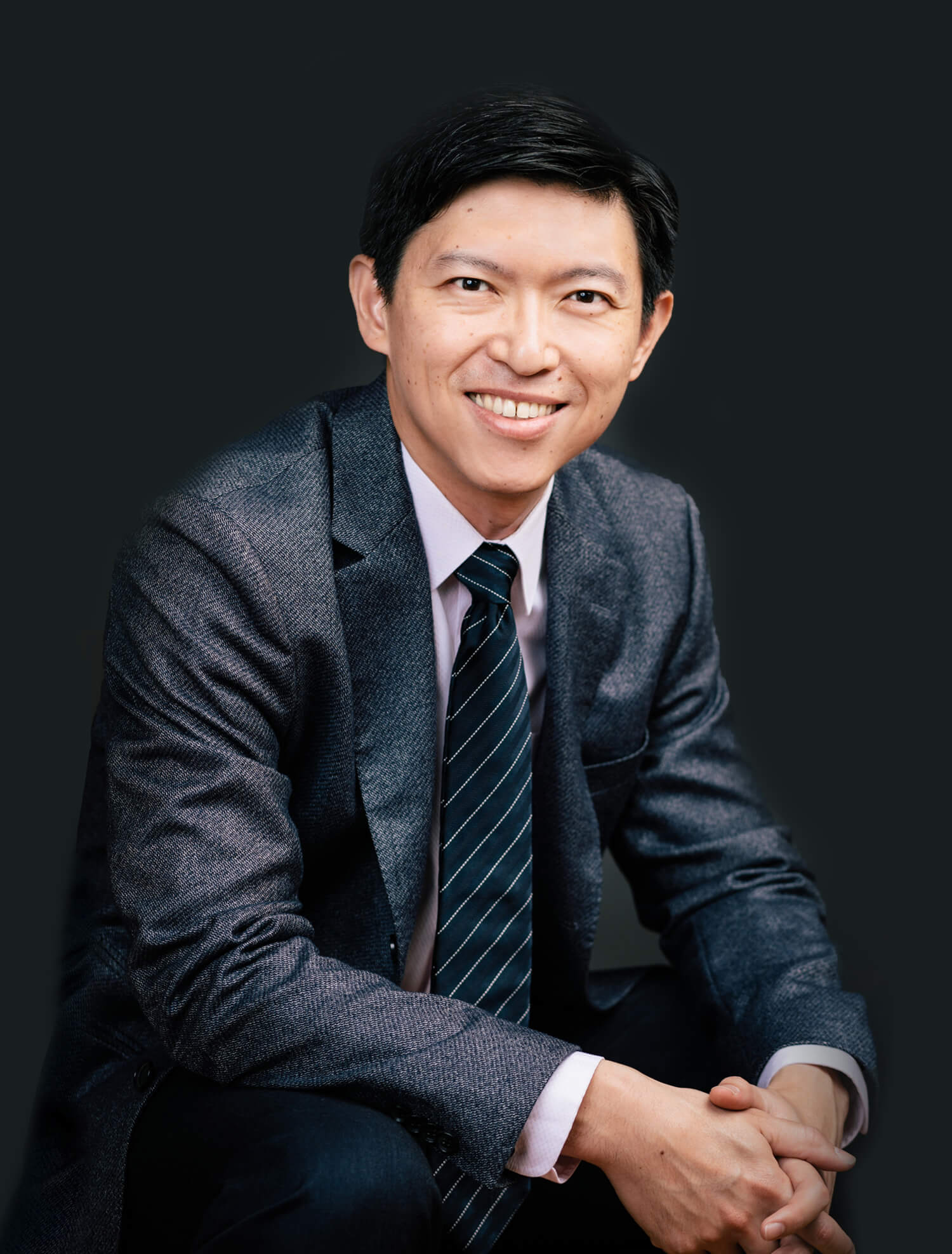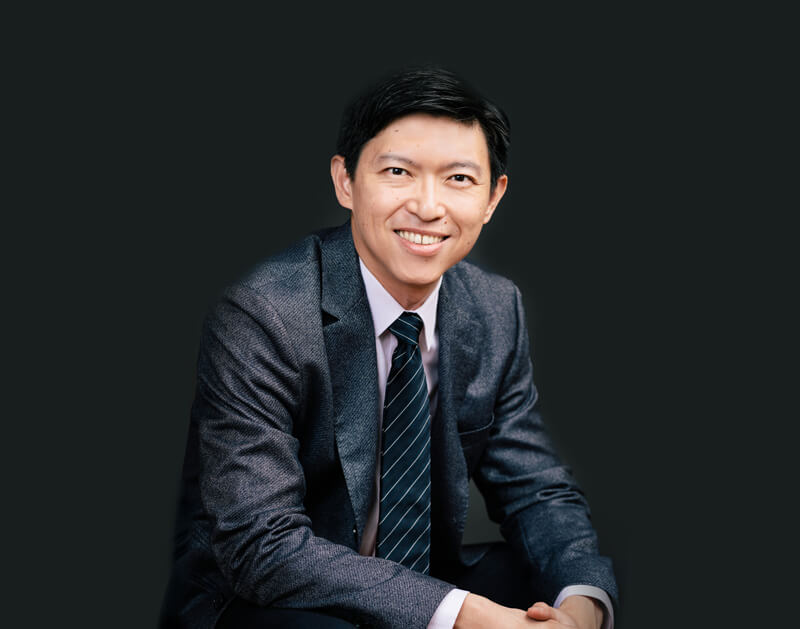(Ask for Dr Ong)

DR. ONG KEE LEONG
Frozen Shoulder Treatment Specialist Singapore With 15+ Years Experience
Dr. Ong Kee Leong is a fellowship-trained senior consultant orthopaedic surgeon who subspecializes in shoulder conditions, such as Frozen Shoulder. He has been registered with the Singapore Medical Council as a specialist in Orthopaedic Surgery since 2011.
Book AppointmentWhat is a frozen shoulder?
A frozen shoulder is a chronic inflammatory condition. The shoulder’s ball and socket joint slowly lose mobility, until it becomes “frozen” as a result of inflammation and scarring of the surrounding shoulder capsule. Having a frozen shoulder limits your range of motion greatly, compromising simple daily activities such as getting dressed or reaching for something, as any movement may cause a great deal of pain. The condition often develops gradually over time and is difficult to detect. This painful condition affects 2-5% of the general population.
What are the symptoms of a frozen shoulder?
The main symptoms of frozen shoulder are pain and stiffness. The discomfort can range from being mild to severe enough that you may not be able to move your shoulder.
The primary symptoms of a frozen shoulder are usually so subtle that you may not notice them. Therefore, it is crucial to be aware of any persistent shoulder pain.
Frozen shoulder generally progresses in 4 stages, with the duration of each phase varying with the timing of treatment interventions. Early detection, together with appropriate treatment methods can help you avoid the undesirable consequences of a frozen shoulder.
- Stage 1 (inflammation): The initial stage may last up to 3 months, associated with pain and reduced range of motion.
- Stage 2 (freezing): Pain slowly becomes worse while the range of motion gradually decreases over a period of 6 weeks to 9 months. Certain types of movements may be especially painful.
- Stage 3 (frozen): Over a span of 4 to 6 months, where the shoulder is “stuck”. The pain dwindles down to a dull ache, especially at night.
- Stage 4 (thawing): Slow but gradual recovery of shoulder movement over a 6 to 24 months period.


Fast Facts About Frozen Shoulder
What are the causes of a frozen shoulder?
Frozen shoulders can be caused by a variety of reasons.
In most cases, a frozen shoulder happens for no particular reason and is deemed “idopathic”.
It can also be caused by traumatic shoulder injuries, like a shoulder dislocation or a rotator cuff tear. In other cases, the initial trigger of a frozen shoulder can be caused by a simple arm movement such as reaching awkwardly underneath a table to switch on a power point, or even putting on a car seat belt.
Diabetes can also be the underlying cause of a frozen shoulder. Diabetics have a higher risk of getting a frozen shoulder, as collagen within the shoulder joint can become sticky when triggered by the presence of high blood sugars.
Non-Surgical Treatments For Frozen Shoulder In Singapore
The first phase of treatment that a shoulder specialist will recommend is conservative and non-surgical. In most cases, patients see significant improvements with non-surgical treatment options.
Anti-inflammatory oral medications
With a frozen shoulder, the shoulder is painful and inflamed, the first line of treatment is to take anti-inflammatory oral medications and pain relievers to help ease your discomfort as you recover.
It is also beneficial to ice and rest the shoulder joint. The ice can help subside the swelling in your shoulder. It is also important to avoid too much movement as it could aggravate the injury.
Physiotherapy
Physiotherapy is the treatment of injury and disease using noninvasive techniques. It focuses on improving your ability to move and function without pain, boosting your quality of life.
Exercises performed during a physiotherapy session aids in the strengthening of your shoulder muscles and speed up the process of restoring motion in the shoulder. As you build strength in your shoulder, pain can be reduced and your shoulder function can be improved. It also helps to reduce the likelihood of future injuries.
Corticosteroid Injections
Corticosteroid injections are anti-inflammatory medicine that will be injected directly into your shoulder joint to reduce the inflammation. Nonetheless, repeated injections are discouraged as they may cause further damage to the shoulder.
Surgical Options For Frozen Shoulder In Singapore
If your symptoms do not improve with physiotherapy and other conservative methods, you may need to turn to surgical options to treat your frozen shoulder to restore function of your shoulder.
Dr. Ong will assess your symptoms in detail before recommending the right surgical option for your specific injury.
Shoulder Arthroscopy (Key-Hole) Capsular Release and Manipulation
Shoulder Arthroscopic Capsular Release and Manipulation is a common procedure performed for recalcitrant frozen shoulders.
By the time the patient with a frozen shoulder has reached this stage of treatment, the shoulder is likely to have undergone and failed other less invasive treatment methods. This is often due to the severity of inflammation and scarring that is within the affected shoulder joint.
The minimally invasive keyhole surgery is performed with small incisions under general anaesthesia. A small arthroscope camera is used with arthroscopic instruments to safely and carefully release the scarred tissue trapping the shoulder and to reduce the inflammation.
After surgery, compliance to physical therapy is necessary in order to maintain the motion that was achieved with surgery. This duration will vary, but if done consistently and properly, your shoulder should be able to achieve a normal range of motion again.
After a frozen shoulder, is it possible to achieve a full range of motion again?
Yes, it is possible to achieve a full range of motion again after the frozen shoulder injury.
How long is the recovery period for a frozen shoulder?
The timeline for recovery depends on a number of factors like the severity of your frozen shoulder, the treatment approach and the adherence to the treatment plan. Full recovery can range from several months to 2 to 3 years.
It is important for patients to understand that the recovery journey may be slow and tedious. Commitment to physiotherapy remains crucial in ensuring complete recovery.
Medisave & Insurance Shield Plan Approved
For Singaporeans & Singapore Permanent Residents
Why Do Patients Choose Dr Ong Kee Leong?
- Dr. Ong Is Passionate In Sports, Giving Him A Deep Understanding Of Sports-Related Injuries And How They Can Be Treated
- Personalised And Professional Approach To Deliver High-Quality Orthopaedic Care Based On The Most Up-To-Date Literature
- Detailed Aftercare Plan To Ensure Smooth, Long-Term Recovery
- Fellowship Trained Surgeon With 15 Years Of Experience In Orthopaedic Conditions
- Problem-Oriented, Well-Organised and Individualized Treatment Plans Catered To Your Specific Needs
- Specialist In The Management Of Sports Injuries And Degenerative Conditions Of The Shoulder And Knee Joints
- Knowledgeable And Pleasant Clinical Staff To Assist You With Your Every Need Detailed Aftercare Plan To Ensure
- Our Care Is Conveniently Accessible At Mount Elizabeth Novena and Farrer Park Hospital
- Minimal Waiting Time For Initial Consultation
- Assistance With Medical Claims (e.g. Medisave & Integrated Shield Plans)
“At our clinic, we generally try to explore non-surgical treatment such as activities modification, physiotherapy and orthotics before recommending invasive intervention options.”
About Dr. Ong Kee Leong
Senior Consultant, MBBS (Singapore), MMed (Ortho), FRCSEd (Ortho)
Dr. Ong Kee Leong is a fellowship-trained orthopaedic surgeon. He subspecializes in shoulder and knee, foot and ankle, hand wrist and elbow surgeries, arthroscopic sports surgery, and the management of sports-related injuries.
He has been registered with the Singapore Medical Council as a specialist in Orthopaedic Surgery since 2011.
- MBBS, National University of Singapore (NUS) Faculty of Medicine 2001
- Member of the Royal College of Surgeons of Edinburgh 2007
- Master of Medicine in Orthopaedic Surgery (NUS) 2007
- Fellow of the Royal College of Surgeons of Edinburgh in Orthopaedic Surgery 2011
- Health Manpower Development Plan (HMDP) Scholarship, Ministry of Health 2012-2013:
- Sports Surgery and Arthroscopy in Germany (Hannover)
- Adjunct Assistant Professor, Lee Kong Chian School Of Medicine, Nanyang Technological University
- Senior Clinical Lecturer, Yong Loo Lin School of Medicine, NUS
Awards & Teaching
- Dr. Ong had received numerous awards such as Best Service and Eastern Health Alliance Caring (Gold) Awards.
- He also has an interest in clinical research and has written papers in multiple peer-review journals. As a Core Faculty of Singhealth Orthopaedic Surgery Residency Program, he oversees the training of junior orthopaedic surgeons.
- Regularly invited to teach local and regional surgeons in Shoulder and Knee Surgery Courses.
- He is a recipient of multiple teaching awards including the Singhealth Residency Outstanding Faculty Awards from 2014-2016 and Changi General Hospital Outstanding Educator Awards 2015-2016.
Have an enquiry about your condition or a certain treatment?
Fill up the form and we will get back to you soon!
Make An Enquiry
Prefer to talk? Call our clinic directly to make an enquiry at (65) 6884 6788
(Please ask for Dr Ong Kee Leong)
our clinics
Visit Us Today
Mt Elizabeth Novena
- 38 Irrawaddy Road #06-59/60/61 Mt Elizabeth Novena Specialist Centre Singapore 329563
- klong@sog.sg
- (65) 6884 6788
- (Ask for Dr Ong)
- (65) 9652 5022
-
Mon – Fri : 9:00 am – 5:00 pm
Sat : 9:00 am – 1:00 pm
other practice locations
Farrer Park Hospital
- 1 Farrer Park Station Road #14-06 Connexion Singapore 217562
- klong@sog.sg
- (65) 6884 6788
- (Ask for Dr Ong)
- (65) 9652 5022
-
Mon – Fri : 9:00 am – 5:00 pm
Sat : 9:00 am – 1:00 pm
Mt Alvernia Medical Centre
- 820 Thomson Road #07-53 Mt Alvernia Medical Centre D Singapore 574623
- klong@sog.sg
- (65) 6884 6788
- (Ask for Dr Ong)
- (65) 9652 5022
-
Mon – Fri : 9:00 am – 5:00 pm
Sat : 9:00 am – 1:00 pm
Billing & Payment
Consultation fees are charged based on length of consultation, and start from SGD$150 (within 30 minutes).
Modes of Payment
We accept the following modes of payment:
- Cash
- PayNow & PayLah
- All major Credit Cards
If you are insured and would like to use a Letter of Guarantee (LOG) from the major insurers in Singapore, please contact us and our friendly clinic staff will assist you and provide more information if required.
Can I Claim Through My Medisave Account? (For Singaporeans and PR)
Yes, you can. Our Clinic is an accredited day surgery clinic by the Ministry of Health. Singaporeans and Permanent Residents may use their Medisave for eligible orthopaedic inpatient procedures and hospitalizations.
The exact amount would depend on the complexity of the procedure. If you have any enquiries, feel free to speak to our friendly clinic staff about using your Medisave account.
Integrated Shield Plans (Singaporeans and PRs)
Yes, patients who have purchased Integrated Shield plans with riders for co-insurance and deductibles will be able to use them in our clinic for eligible procedures. For more information, contact us to find out if your procedure is claimable.
The 6 Approved Integrated Shield Insurers are:
- NTUC Income’s IncomeShield and Enhanced IncomeShield
- American International Assurance International Co’s (AIA) HealthShield Gold
- Great Eastern Life Assurance Co’s SupremeHealth and SupremeHealth Plus
- Aviva Ltd’s MyShield
- Prudential Assurance Co’s PRUShield
- AXA Shield

